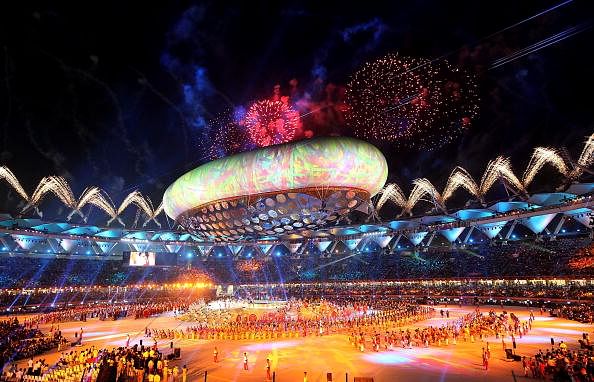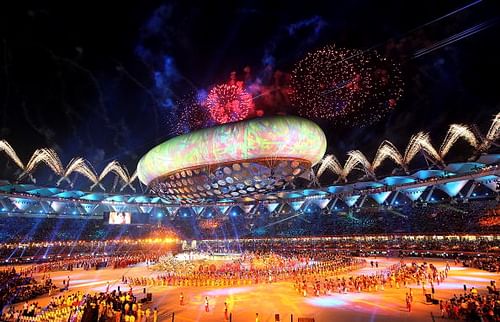
Do we really need the Commonwealth Games?

With the Glasgow Commonwealth Games coming to a close, questions are once again being raised about the significance of these Games.
The event has been held every four years since 1930 and involves athletes from the British Commonwealth of Nations. 71 teams participate in these Games, which were started around 80 years ago so that the British empire could bring together its colonies, and help them understand each other through the medium of free and fair sporting competition.
But in the present context, with all the nations gaining independence, none of this is remotely relevant, and spending huge sums of money on an event which is not even taken seriously by the top athletes is a debatable matter.
The financial losses incurred
Most of the countries in the Commonwealth are developing countries and the cost of hosting this two-week event takes a huge toll on the economy. The large amount of costs involved in hosting it is a major reason why many nations shy away from hosting the event.
After the next Games in 2018 in Brisbane, Canadian city Edmonton and South Africa's Durban are the only bidders for 2022. Brisbane beat only one rival – Sri Lanka – for the 2018 edition.
Often, the nations bid for the Games in the hope that the tourism and infrastructure will increase, failing to realise that this event which the government spends crores to host, will be forgotten about and instead criticized once the Games are over.
A case in point is the Delhi Games in 2010 where almost Rs. 70,608 crore was spent to host an 11-day event; the eventual cost incurred was reportedly 100 times more than the initial proposed amount. Glasgow, meanwhile, shelled out almost 1 billion pounds, making these two events the costliest in the history of the Commonwealth Games.
Does hosting the Games help in any way?
The corruption controversies of Delhi and the overspending are still much talked-about topics in the sporting world. In a way, it could be said that the 2010 Games harmed India’s image a little.
There are other questions that need to be asked here too. Have the Games made Glasgow a sports destination or added to the image of Scotland as a tourist hotspot? Did the 2010 Games give Indian sport a 'leap’ which they was expected to give?
Delhi is no better a tourist hotspot than it was before 2010, the 1,000-crore Nehru Stadium lies in disarray and lacks maintenance, and the nation is still struggling to become a sporting country.
And although the Indians won a record 101 medals in Delhi, the ‘sporting improvement’ was hardly reflected in their Olympics performance, where India returned without a gold at the 2012 London Olympics. Moreover, the country’s performance at this year’s edition, where the athletes were expected to at least come close to their incredible 2010 haul, has been well below expectations – India has won all of 14 gold medals going into the last day of the event.
Lack of competition
The main reason for the success of many athletes in the CWG and their relative failure in the international arena is the lack of big names participating. Delhi missed Usain Bolt and Yohan Blake, along with Britain's Mo Farah, Andy Murray and Australian tennis star Lleyton Hewitt. This year’s Games again saw Farah's absence as he decided to concentrate on the lucrative Diamond League circuit instead
Bolt only played in the 4x100 metre relay. He had expressed his sadness at missing the 2010 Delhi Games as it was only months ahead of the World Championships and he could not risk injury. Doubts were raised about whether Bolt was participating in his first CWG this time due to pressure from the organizers when he said, "I did not want to go to the trials. That is why I am going to run only in the 4x100 metre relay."
The truth is that these athletes prefer to peak once a year, and they find the CWG to be an anomaly in their training schedule. Also, many of the world-class athletes around the world prefer to compete in the Asian Games, which has a much higher level of competition.
A flip side is that the Commonwealth Games give youngsters the chance to performance and gain popularity at an international stage. However, success in an events with mediocre competition can also make the players complacent, and this could partly explain why the players who win medals in the CWG aren't as successful on the global platform.
CWG – a relic of a bygone era
Delhi is still reeling under the consequences of 2010, during which there was widespread displacement of the poorer sections of society to accommodate the infrastucture overhaul. There was also an unnecessary drain of wealth, and hosting the event did nothing to get India any closer to its dream of hosting the Olympics.
Moreover, while the presence of all the member countries in the Commonwealth of Nations isn’t exactly an indication of their continued subservience to Britain, it does serve as an uncomfortable reminder of British rule over these lands in the previous century.
The CWG seem to be a thing of the bygone era. The expenditure isn’t justified and success at these Games is often questioned. Considering all its negatives, it wouldn’t be amiss to say that we don’t really need such an event in the future.